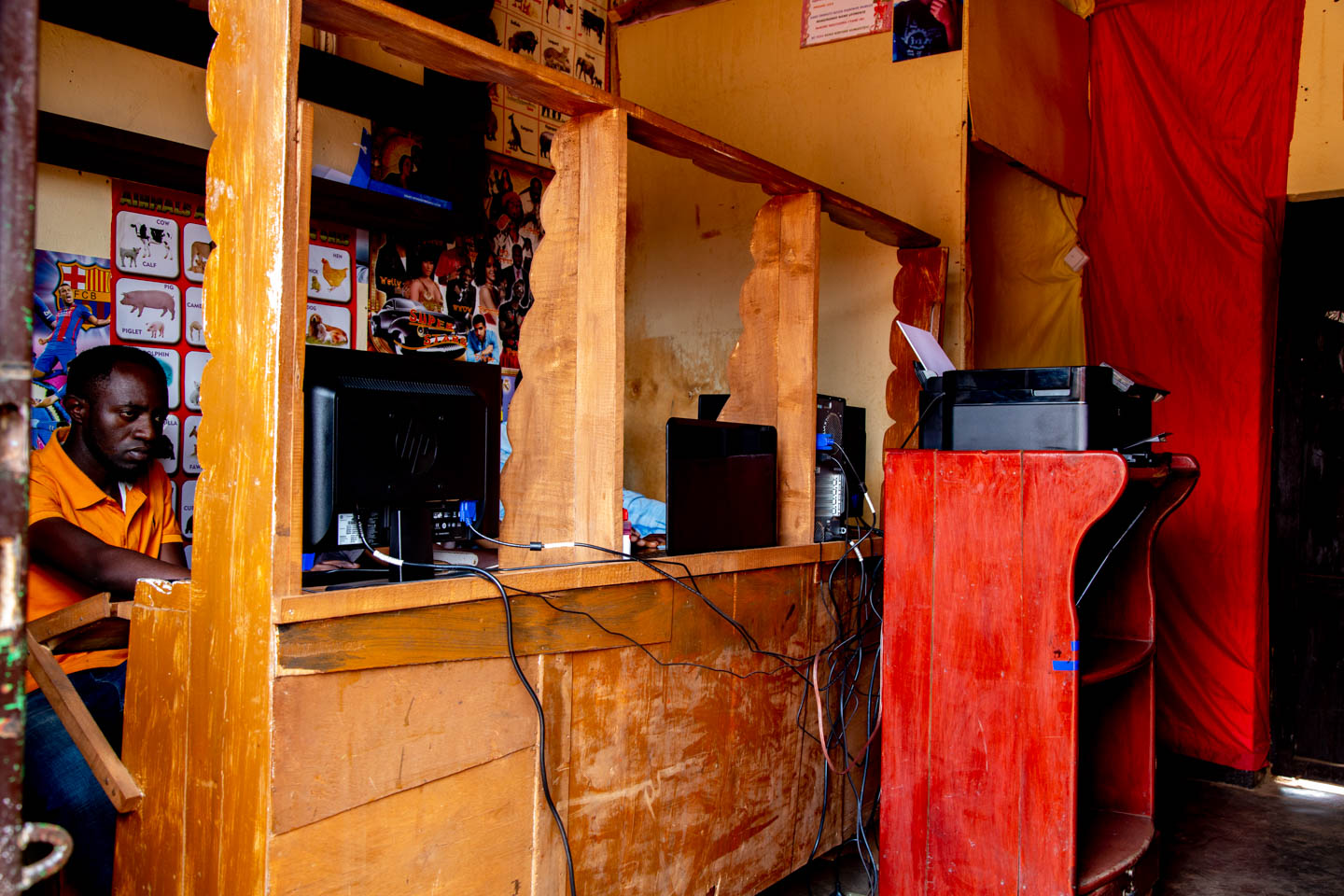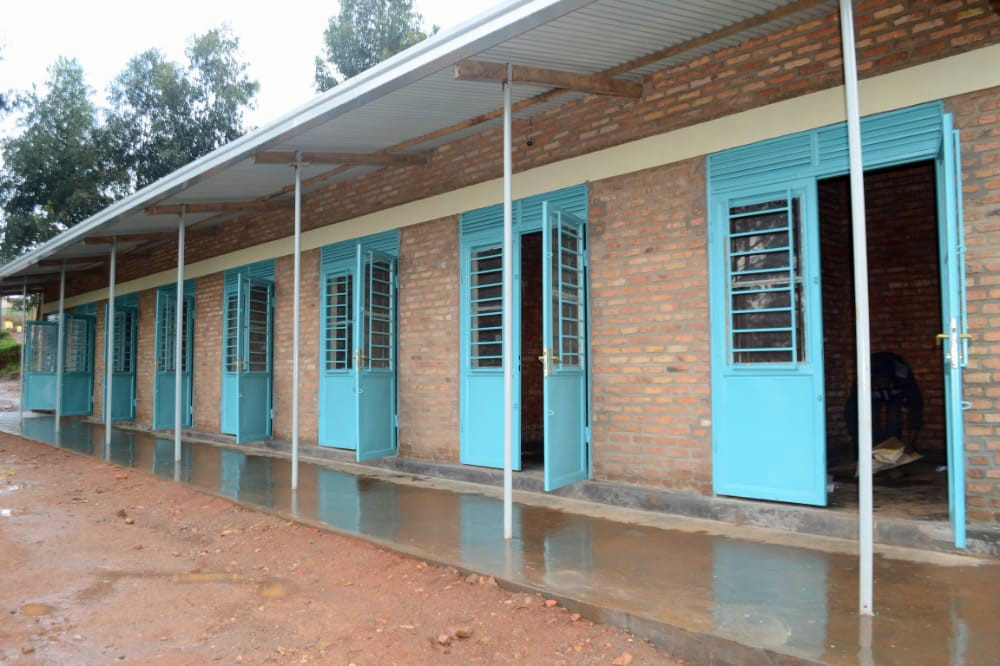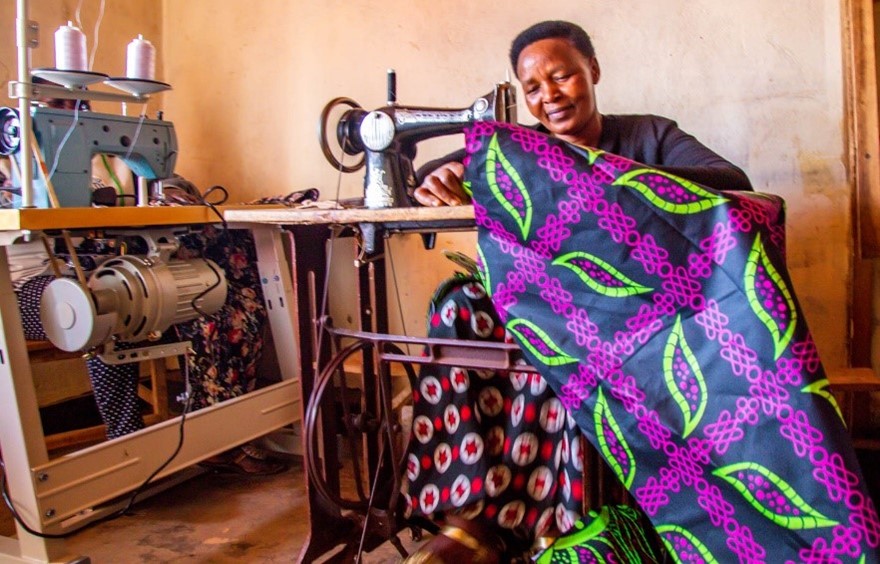Creating livelihood opportunities for refugees through energy access -recommendations for organisations working with entrepreneurs in displacement settings
Completed in March 2022, the Renewable Energy 4 Refugees (RE4R) project, implemented in and around Rwandan refugee camps, offers a persuasive case for integrating strategies that promote the productive use of energy (PUE) as a means to boost livelihoods, self-reliance and quality of life amongst refugees and their local host communities.
Typically inefficient, unsafe and inadequate, the provision of energy in humanitarian settings is generally limited to short-term solutions as camps tend to be perceived as places of temporary shelter, even though many refugees end up living in them for decades. Most agencies and organisations that support refugee entrepreneurs recognise energy services as a crucial need, but the difficulty, bureaucracy and cost of extending electricity to refugees tends to overstretch their resources. However, the subsequent ad-hoc approach to energy access hampers the efforts of refugees to improve their livelihoods and achieve economic independence, so perpetuating their dependence on aid.
Managed by Practical Action, in partnership with UNHCR, in the Kigeme, Nyabiheke, and Gihembe refugee camps, the RE4R project sought to reshape the humanitarian response by demonstrating the viability of market-based approaches to deliver sustainable and affordable energy services to households, businesses and community facilities in displacement settings. Overseeing the PUE component, Energy 4 Impact built a market system in which refugee and host community entrepreneurs gained access to the training, finance and appliances required to improve their businesses. The 360-degree package of support provided to entrepreneurs included building financial management skills, offering market analysis to foster expansion into new locations or goods and services, developing technical skills when working with appliances, sensitising on health and safety protocols, and advising on forging partnerships with businesses in the wider host community.
The results at the end of the programme validate this holistic approach. Each one of the 128 supported businesses recorded an increase in profits over the two years of implementation, with 84 reporting a more than 50% increase (it is worth noting that the Covid-19 pandemic forced shop closures, limited business hours and undermined consumer demand, so profits may have been even higher otherwise). The enterprises reported 284 employees at the outset, but the intervention created an additional 141 permanent jobs and 9 temporary jobs, a 53% increase in employment. Furthermore, it created the pathways for a sustaining market ecosystem for PUE businesses in and around the camps: 218 appliances were acquired by enterprises; 23 businesses were connected to new markets; 6 appliance suppliers were linked to enterprises; and 32 loans were acquired by businesses from various lenders.
Besides these successes, the intervention encountered several challenges, ranging from health and safety issues with the power supply, to enterprises encountering difficulties accessing finance. By providing a transparent account of lessons learned in key project areas, as detailed below, Energy 4 Impact hopes other organisations seeking to implement PUE programmes in displacement settings will benefit from its insights.
Selecting and engaging entrepreneurs
From the outset, the RE4R PUE approach targeted only pre-existing businesses as incubating start-ups with higher financing and mentoring needs would unduly tax resources and so limit the overall impact of the approach. An initial mapping exercise identified 230 enterprises in and around the camps across a variety of value chains including agri-processing, communications, textiles, refrigeration and battery charging. Energy 4 Impact selected the 150 most suitable entrepreneurs according to the following criteria:
- their viability according to business data on income and available capital;
- their realistic growth potential given the size of local markets for their goods or services;
- their relative need for energy (or a higher level of energy) to grow their business;
- their likely capacity to contribute 30% of the appliance costs;
- their willingness to potentially relocate or expand into host communities to take advantage of greater energy access and business opportunities.
It soon became clear that several refugees harboured scepticism and mistrust about the project because some previous interventions had not met their expectations. To counteract this low buy-in from some participants and build trust in the initiative, the team held workshops to outline how the intervention would provide 360-degree support to enterprises, highlighting the successes of previous Energy 4 Impact PUE programmes. Mentors under the programme also factored in enough one-on-one time to create a trusting working relationship with the entrepreneurs built on an open and honest dialogue which managed their expectations and ensured their commitment.
The team also encountered a significant rate of participant drop-out after recruitment: around 16%. Some entrepreneurs changed their mind and opted to engage in other employment activities. The mentors decided to minimise drop-out by formalising their engagement with a contract once the entrepreneurs had understood the design and scope of the planned intervention. There were also issues with the provision of business data: some refugees submitted misleading data in order to be recruited onto the programme. Collaboration with other agencies and partners working in the camps became critical to verify the provided business data.
Another increasingly marked challenge was the frequent relocation of refugees to other camps: partners working in the camps would receive minimal notice of plans at the monthly refugee coordination committee meetings. Relocation meant refugees were forced to find new business premises where they could continue using their appliances. To overcome this challenge in future, implementers could seek to sign a memorandum of understanding with camp authorities that includes a clause that would give both agencies and refugees more advance warning of upcoming relocations.
Providing energy access to refugee enterprises
Before the intervention, 10% of refugee businesses had no access to energy, 75% used small-scale solar technologies for lighting to extend their opening hours or to offer basic services such as phone charging, and 15% had connections to the national grid or the diesel-powered mini-grids powering camp institutions.
The original aim under the PUE intervention was to provide higher levels of sustainable energy access to entrepreneurs through larger-scale solar home systems (SHSs) to enable the use of higher-powered appliances. Whilst 24 enterprises were helped to access SHSs, it became clear that most enterprises would need to use tools and appliances with a higher electrical load than SHSs could deliver, so connections to the national grid were necessary. So, in a major pivot from the initial programme design, Energy 4 Impact engaged the national energy provider, Rwanda Energy Group (REG), to ascertain whether it was possible to extend grid electricity supply to selected enterprises.
However, the assessment by REG noted that many of the enterprises were either located inside domestic homes or in close proximity to other residential abodes. It deemed these premises unsuitable for connection due to the heightened risk of fire. As residential areas in refugee camps are typically densely packed with homes constructed from poor quality materials, PUE interventions need a mechanism to circumvent this common challenge, such as clustering entrepreneurs in a business centre away from residential areas, as discussed in the next section.
The construction of business centres
In order to provide a safe grid connection to enterprises, it was decided to construct business centres in the three camps to house a combined total of 34 enterprises. The project incurred extra costs at Gihembe because it had to finance an extension to the large transformer outside the camp, as the transformers inside the camp were too small to meet the anticipated power demand. For all three business centres, the main meter was then split into several sub-meters for individual enterprises.
Both the business centre construction and their dedicated grid connection were solutions reached after protracted assessment and consideration of constraints within the camps. As such, PUE interventions should factor in enough time early on to negotiate with energy providers and camp authorities about the options for energy access. However, the fact that RE4R then owned the main meters for the business centres (both handed over to UNHCR at the end of the project), with the businesses paying for their share of electricity used, allowed the project to get around another obstacle. To register as individual energy customers, REG requires a national identity card and land title, which the Rwandan refugees cannot provide, given their only form of ID is their refugee card. Although UNHCR encourages refugees to formalise their businesses by applying for a ‘right to work’ permit, this still falls short of the documentation required by REG. To overcome this, implementers may need to find fruitful ways to work alongside the UNHCR to lobby the national government to make the process of availing power easier for refugees. Alternatively, accessing power from private utilities rather than the national supplier may be preferable as they may have more flexible minimum ID requirements.
Nevertheless, building business centres turned out to be a workable solution as the refugees now enjoy a safe and spacious working space with secure power connections. To ensure the smooth running of business centres, Energy 4 Impact grouped entrepreneurs into associations of similar trades. Each association has the power to elect their own leaders and formulate by-laws to guide their operations: these rules stipulate how the elections of new officials will be conducted, governance matters and the code of conduct required from members.
Acquiring financing for appliances
To overcome affordability challenges, Energy 4 Impact offered a direct subsidy of up to 70% to the entrepreneurs for a wide range of modern electric appliances including sewing machines, egg incubators, hair clippers, meat grinders, fridges, computers and power tools. It then linked refugees to local financial institutions (FIs) to access credit for the remaining 30%. The most appropriate local FIs had been identified during the initial mapping exercise which revealed several had previously loaned to refugee enterprises. However, only three of these FIs engaged with the programme and ended up offering a total of 10 loans to the entrepreneurs.
Given market-building efforts had demonstrated there was a strong pipeline of PUE enterprises in and around the camps, this figure fell short of expectations. It suggests that many FIs are still unfamiliar with technologies such as renewable energy systems or productive use appliances and have not yet developed suitable loan products for them. Refugee businesses are also viewed as high-risk for credit, but this perception is inaccurate given the experience from the programme showed that no refugees defaulted on the loans provided. To overcome this, future projects could offer technical training to FIs early on to help them better assess the profile of these types of investment.
Applying to savings and loans groups turned out to be a more successful strategy: 22 refugee enterprises received loans from such groups. As such, other PUE interventions might consider helping refugees set up and administer this kind of lending as part of the programme design. The remaining supported entrepreneurs met the 30% target for purchasing appliances through their own savings or loans and donations from family.
Other models such as PAYGo could also have been investigated early on as a possible source of financing. Moreover, future projects could explore revolving funds as a lending option as this has also been successful as a means of acquiring credit for refugee enterprises.
Appliance maintenance and repair
Once the refugee entrepreneurs had purchased the appliances and received training on safe and optimal handling, Energy 4 Impact needed to ensure there was ongoing technical support in place for appliance repair and maintenance. The challenge is that most suppliers are found in sizeable towns far from the settlement camps: meaning that getting machines fixed or acquiring spare parts is time-consuming and expensive, involving travel and an extended period in which activity is stalled. To avoid this, the project made an early assessment of the local availability of technicians and spare parts in order to favour the selection of appliances that had both in nearby supply. After recognising it would save the businesses time and money if the entrepreneurs could troubleshoot and undertake minor repairs themselves, the mentors organised visits with local artisans who taught them how to maintain their machinery. It would be prudent for future PUE programmes to foster self-reliance on technical issues in a similar vein.
Integrating with the host community
Relationships between displaced people and host communities vary widely around the world. In many cases, refugees are only able to set up businesses within the camp environment, as they are either unable to gain the relevant permission to operate outside or tensions with the local community make it difficult or inadvisable. However, it is sometimes possible for refugees to expand their activities into the host community, as was the case with many of the supported enterprises in Rwanda.
Household income amongst refugees frequently consists of UNHCR remittances or meagre wages earned from casual work. This limits the purchasing power for goods and services within the camp and refugee enterprises can usually benefit from the stronger demand and better infrastructure found in the host communities.
Although this is not the case in many other countries, refugees have the legal right to work in Rwanda. Whilst many entrepreneurs would like to operate outside the camps, they are often uncertain of how to meet business registration requirements and fear being subjected to taxes and other levies if they do so. So in countries where refuges have the legal right to work, it is therefore suggested that other programmes undertake training and sensitisation that enables refugees to understand the long-term benefits of applying for an official work permit. To complement UNHCR efforts in Rwanda to encourage refugees to formalise their businesses, Energy 4 Impact also advised refugees to use Irembo services, a Rwandan online platform that provides eGovernment services such as tax declaration, online payments, eVisas and eLicenses.
Refugees also justifiably fear facing stiffer competition outside the camps, so it is advisable to help refugees broker partnerships with counterparts in the host communities to partner or collaborate in business. Refugees should also be encouraged to formalise relationships with off-takers and suppliers for their goods. Both sides tend to avoid signing formal agreements to avoid risking litigation if the agreement needs to be broken, due to market instability for example. However, this creates a vicious cycle: the lack of formal agreement makes any supply arrangements non-binding and hence more likely to be broken by both sides. So further training is needed to demonstrate how these agreements can take market instability into account, as well as the reassuring benefits of doing business within broader compliance frameworks.
Conclusion
RE4R has proved that complementing energy access with a comprehensive 360-degree approach to livelihood development can have a transformative impact on the income and quality of life of entrepreneurs in displacement settings. However, the challenges encountered also showed that energy access and PUE development cannot be looked at in isolation as the camps are a unique environment where the activities of past implementers and current stakeholders need to be understood early on in programme implementation.
To ensure that refugee enterprises continue to thrive after the end of the programme, sustainability measures were put in place in the final six months, including:
- Struggling entrepreneurs were introduced to better-performing ‘champions’ for guidance and advice.
- Enterprises were linked to local technicians who could provide ongoing assistance with their appliances.
- Entrepreneurs were made aware of NGOs, FIs and local service providers able to provide continued business training.
- By paying a small monthly stipend to the association of enterprises within their business centres, refugees could pool maintenance costs and access a welfare fund in times of hardship.
- Entrepreneurs were linked to local markets for their goods and services in order to secure longer-term tenders.
Peter Weston, Managing Director of Energy 4 Impact comments,
The strong results emerging from the RE4R programme show the life-changing impact of PUE interventions in humanitarian contexts. It not only fosters self-reliance amongst supported entrepreneurs and enables them to provide for the needs of their families, it also sends a ripple effect of benefits into the community at large: more and better goods and services, employment opportunities, stronger integration into the towns outside the camps, and so on. Building livelihoods with energy helps refugees move beyond dependency and take charge of their own lives.
Laura Clarke, Project Manager for RE4R at Practical Action, adds,
Through RE4R we have shown that integrating livelihoods activities alongside energy access interventions is an effective strategy. By addressing cross cutting factors, such as access to finance, skills training, market linkages and awareness raising, better outcomes for both energy access and livelihoods can be achieved. Using this approach allows refugees and their host communities to build financial resilience and improve their quality of life, transforming the environment for people living and working in and around refugee camps.



